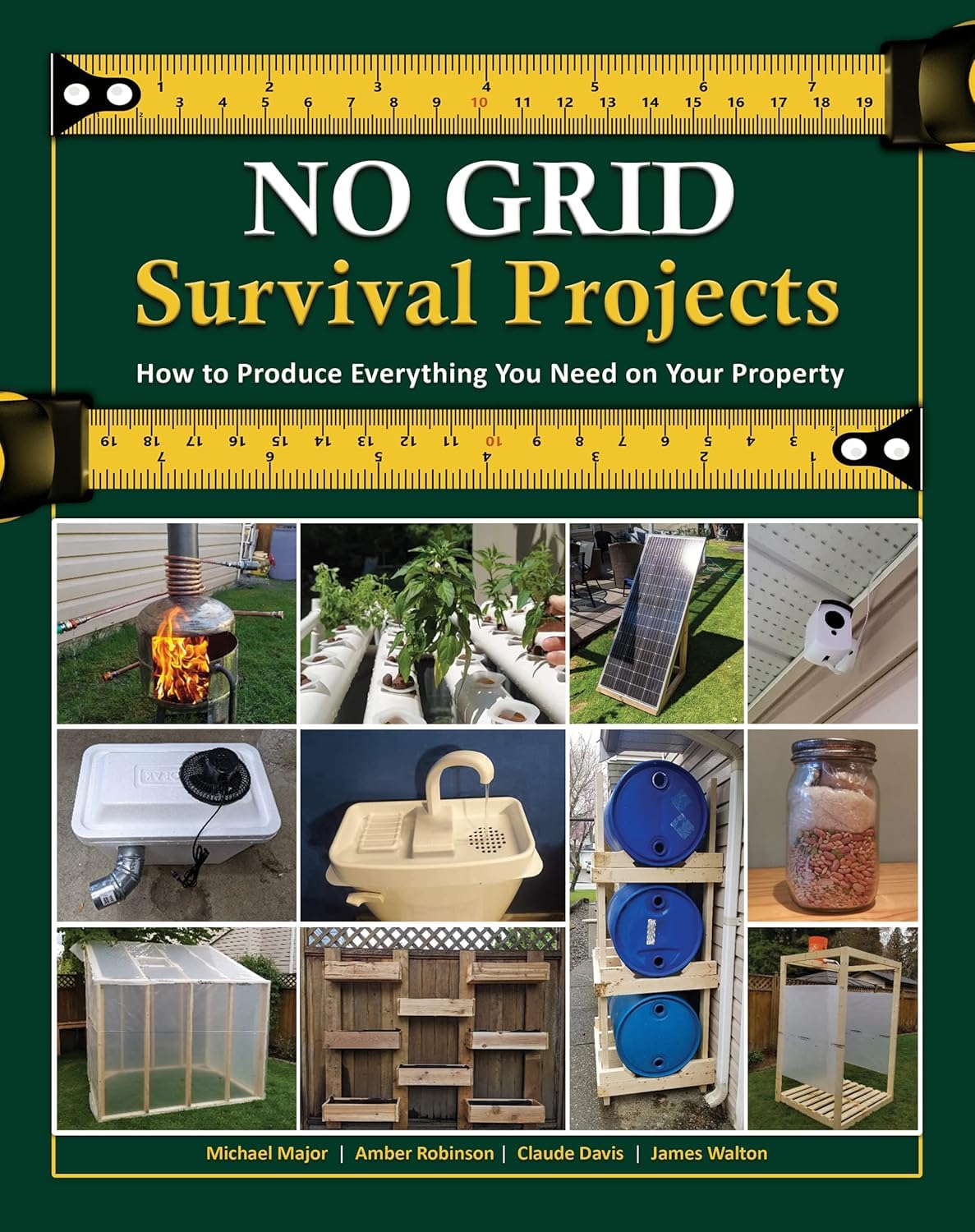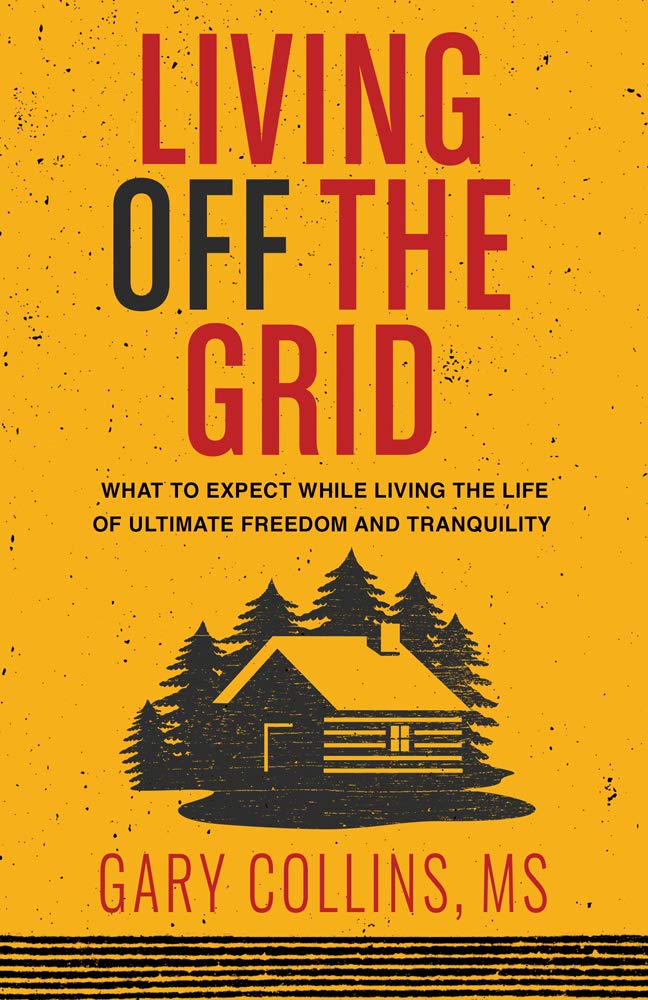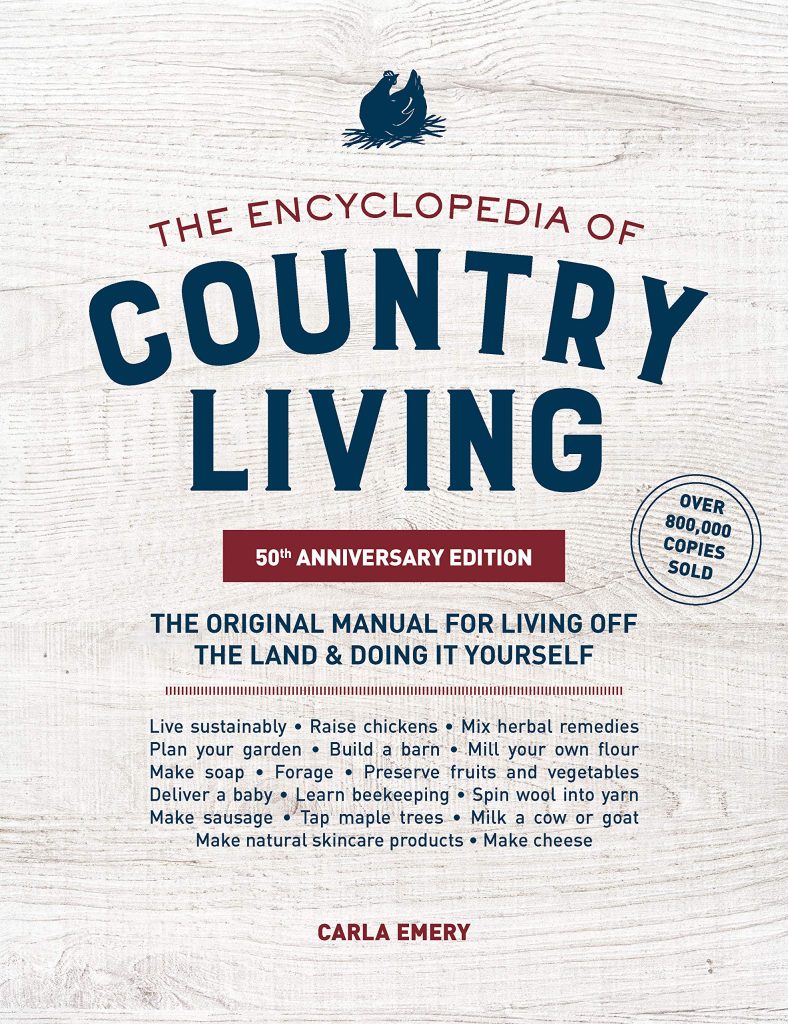
Price: $39.00 as of 09/21/2025 – Details
This product has a 4 out of 5 rating as of Aug 25, 2023 15:03:04 UTC
Here’s a straight-shooting review of OFF-GRID Survival Projects by Claude Davis.
Quick take
A practical, project-driven handbook for folks who like doing rather than just reading. It shines when you want simple, buildable off-grid upgrades (water, heat, power, food) with clear parts lists and step-by-step guidance. Editing is a bit uneven and some cost/parts details feel dated, but the projects themselves are useful and approachable.
What stands out
- Hands-on builds: Rocket stoves, small heaters, basic water filtration, low-tech refrigeration ideas, compact solar setups, simple wind options, rain catchment tweaks, food storage and preservation—stuff you can actually make in a weekend.
- Beginner-friendly: Plain language, diagrams, and cut-lists lower the barrier if you’re new to tools. Most projects need common hand tools plus a drill/saw.
- Modular approach: Each project stands alone, so you can cherry-pick what fits your setup (cabin, RV, backyard, homestead).
- Low-tech bias: Lots of redundancy, mechanical solutions, and maintenance tips—not just “buy a bigger battery.”
Where it could be better
- Inconsistent depth: Some chapters nail measurements and build steps; others gloss over important specs (wire gauge, flow rates, load limits).
- Aging prices & parts: Cost estimates and specific components don’t always match what you’ll find today. Expect to re-price and cross-shop substitutes.
- Safety footnotes are light: Electrical and combustion projects could use stronger warnings and checklists; you’ll want to add your own PPE and code-aware practices.
- Editing/layout quirks: Occasional repetition or jumpy sequencing; nothing fatal, but you might reread sections to be sure.
Best for
- New preppers, DIY homeowners, off-grid/bug-out tinkerers who want practical upgrades without specialty tools.
- Anyone building a hybrid setup—solar + small wind + thermal + water resilience—on a budget.
Not ideal if…
- You want deep engineering math, NEC-level electrical design, or pro-grade homestead systems.
- You’d rather buy turnkey gear than build.
Tips to get the most from it
- Start with quick wins: Rain catchment, rocket stove, pantry rotation—fast confidence builders.
- Localize parts: Update every materials list with current prices and regionally available fittings.
- Document your build: Take measurements/notes as you go; future you will thank you.
- Layer safety: Fuses/breakers for DC projects, CO detectors near combustion, strain relief on all lines, and weatherproofing where needed.
Verdict
A useful, roll-up-your-sleeves project book that helps you add real resilience at home or off-grid. Expect to supplement a few specs, sanity-check safety, and re-price parts—but if you’re willing to build, you’ll get multiple tangible upgrades out of it.



